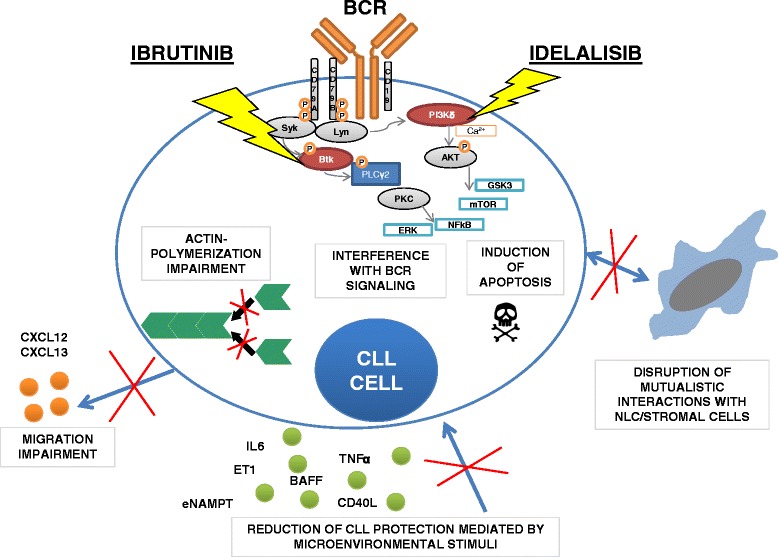Fig. 1.

Ibrutinib and idelalisib target CLL cells. The picture summarizes the main mechanisms of action of ibrutinib and idelalisib in CLL. In particular, both agents are able to interfere with BCR signaling cascade by inhibiting the phosphorylation of Btk and PI3Kδ molecules respectively, thus limiting the activation of pivotal pro-survival pathways in CLL cells, i.e., NF-κB, ERK, mTOR, and GSK3 pathways. As consequence, ibrutinib and idelalisib induce pro-apoptotic signaling on CLL cells. They also impair actin polymerization and interfere with chemokine and adhesion receptors, thus leading to ineffective migration and adhesion. Ibrutinib and idelalisib hamper protective stimuli mediated by soluble factors and by interaction with NLC and stromal cells. BCR B cell receptor, Btk Bruton tyrosine kinase, PI3Kδ phosphoinositol 3 kinase δ, NLC nurse-like cells
